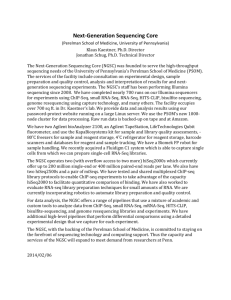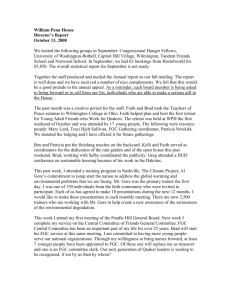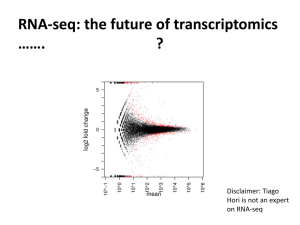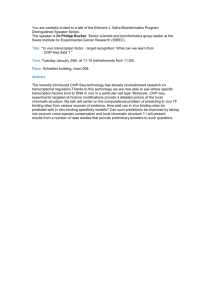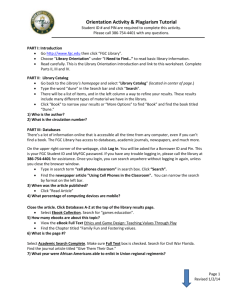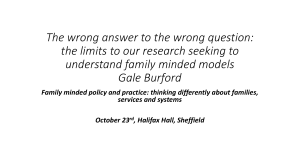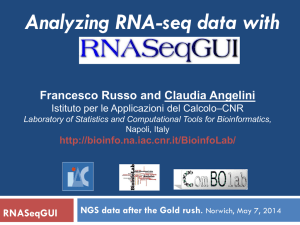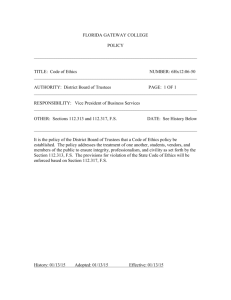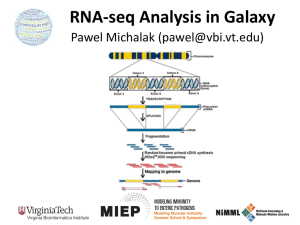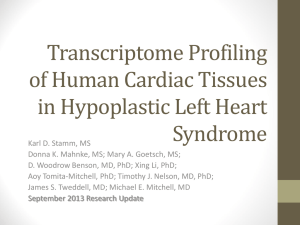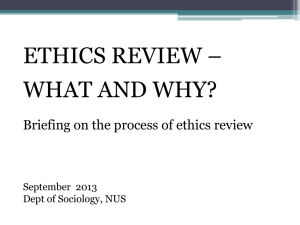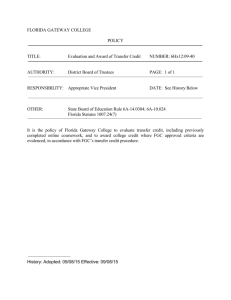Facilities-FGC-20140307
advertisement
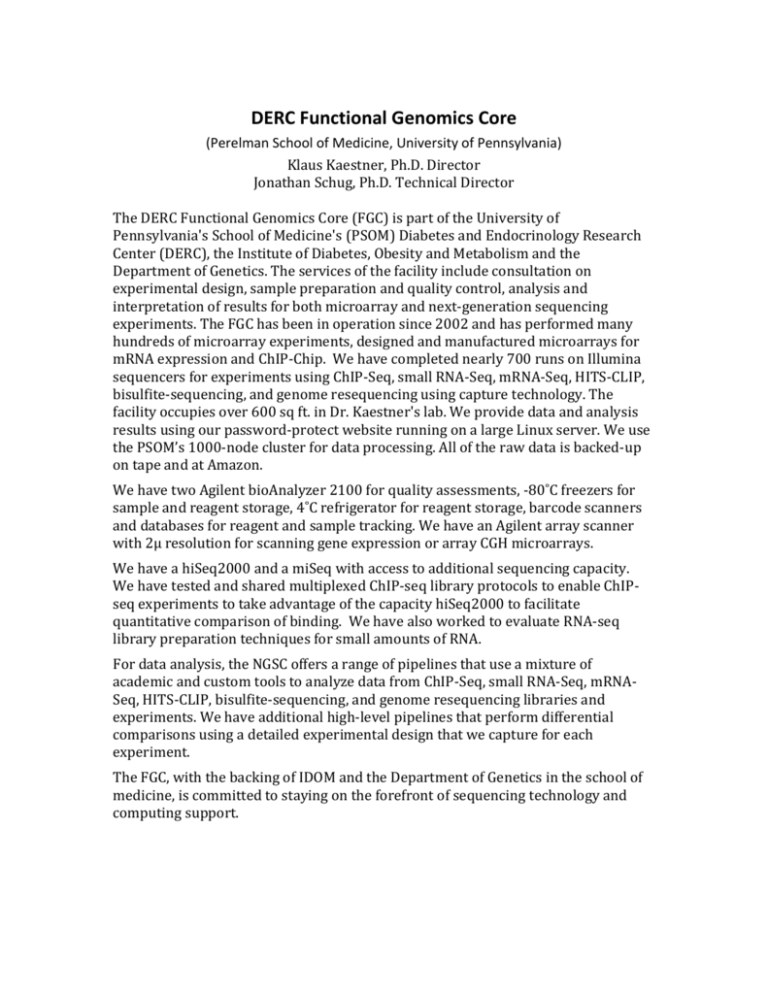
DERC Functional Genomics Core (Perelman School of Medicine, University of Pennsylvania) Klaus Kaestner, Ph.D. Director Jonathan Schug, Ph.D. Technical Director The DERC Functional Genomics Core (FGC) is part of the University of Pennsylvania's School of Medicine's (PSOM) Diabetes and Endocrinology Research Center (DERC), the Institute of Diabetes, Obesity and Metabolism and the Department of Genetics. The services of the facility include consultation on experimental design, sample preparation and quality control, analysis and interpretation of results for both microarray and next-generation sequencing experiments. The FGC has been in operation since 2002 and has performed many hundreds of microarray experiments, designed and manufactured microarrays for mRNA expression and ChIP-Chip. We have completed nearly 700 runs on Illumina sequencers for experiments using ChIP-Seq, small RNA-Seq, mRNA-Seq, HITS-CLIP, bisulfite-sequencing, and genome resequencing using capture technology. The facility occupies over 600 sq ft. in Dr. Kaestner's lab. We provide data and analysis results using our password-protect website running on a large Linux server. We use the PSOM’s 1000-node cluster for data processing. All of the raw data is backed-up on tape and at Amazon. We have two Agilent bioAnalyzer 2100 for quality assessments, -80˚C freezers for sample and reagent storage, 4˚C refrigerator for reagent storage, barcode scanners and databases for reagent and sample tracking. We have an Agilent array scanner with 2µ resolution for scanning gene expression or array CGH microarrays. We have a hiSeq2000 and a miSeq with access to additional sequencing capacity. We have tested and shared multiplexed ChIP-seq library protocols to enable ChIPseq experiments to take advantage of the capacity hiSeq2000 to facilitate quantitative comparison of binding. We have also worked to evaluate RNA-seq library preparation techniques for small amounts of RNA. For data analysis, the NGSC offers a range of pipelines that use a mixture of academic and custom tools to analyze data from ChIP-Seq, small RNA-Seq, mRNASeq, HITS-CLIP, bisulfite-sequencing, and genome resequencing libraries and experiments. We have additional high-level pipelines that perform differential comparisons using a detailed experimental design that we capture for each experiment. The FGC, with the backing of IDOM and the Department of Genetics in the school of medicine, is committed to staying on the forefront of sequencing technology and computing support.
